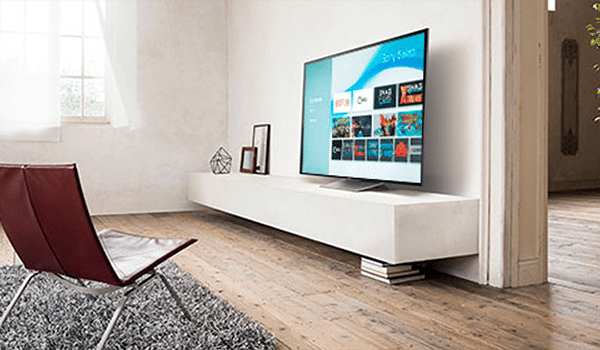While using smart home appliances may improve our daily lives and make our houses more secure, there are times when we must give up some privacy in order to reap these benefits. There are several instances of how smart devices are exploited to spy on their owners. There is the tale of the ADT technician who spied on his female clients and the one about the Ring camera that was used to frighten young children. More recently, a user of Eufy security cameras learned that cloud storage made client camera footage available to the public. Unfortunately, cameras are just one of a large number of IoT devices that gather information about us and exploit it in ways we’re unaware of. You are also being tracked by your laptops, modems, and refrigerators. Here are a few ways your home’s gadgets and appliances are spying on you.
1. Security Cameras
Table of Contents
The purpose of security cameras is to make your home more safe, but occasionally they have the opposite effect. The Federal Trade Commission has filed a lawsuit alleging that home security company Ring gave its employees and subcontractors full access to customers’ cameras, some of which were installed in bathrooms and bedrooms. Even if you can’t completely eliminate the possibility of your camera seeing you, you can greatly reduce it. Use two-factor authentication, update your firmware regularly, change your camera’s default password, and stay away from installing cameras in private places of your house.
2. Your Laptop
While the camera on your laptop’s display may be necessary for Zoom calls, it can also be used to spy on you. Hackers can access that camera and the video of you on it thanks to some software and computer infections. They can even make it such that you won’t notice that your computer is using its camera by turning off the LED recording light. If your laptop has a camera cover, you may easily prevent this invasion of privacy by closing it or by covering it with a small Post-it note when not in use.
3. Smart TVs

The majority of us rely on smart TVs to satisfy all of our streaming entertainment needs, including our favorite music playlists from Pandora and Spotify as well as our favorite TV series and movies from Netflix, Hulu, and other services. However, while smart TVs are amusing you on screen, they are secretly gathering information about your watching preferences via a technology known as automatic content recognition (ACR). The manufacturer can obtain information about what you’re viewing thanks to this technology. The business utilizes that information to deliver you tailored adverts from a variety of sponsors and suggest relevant programming you might enjoy. Although it is possible to reject ACR, most TV manufacturers make it challenging by hiding this choice deep inside their privacy settings.
4. Smart Meters
Smart meters increase the efficiency of your house by enabling you to track your energy usage in real time and make adjustments to reduce your electricity costs. They can even alert you if you accidentally left that curling iron on, protecting your house from a potential fire. Sadly, there are claims that smart meter providers can utilize the data to determine whether you’re using a computer, watching TV, or drying your hair, and then use those behaviors to build a profile for marketing purposes.
5. Home Security Systems
While helping to keep your family and possessions safe from would-be burglars, home security systems also gather a lot of personal information about you. Social Security numbers, payment details, and email addresses are all included in this data. Some businesses also record the audio and video data gathered by your home security systems. While the majority of security providers claim to solely utilize this information internally to tailor services to their clients, this sensitive data is still at risk in the event that the provider itself is breached, as happened with Wyze a few years ago.
6. Your Modem
The majority of us are aware that our ISP records the websites we visit and then sells that surfing information to other parties so they can advertise to us. You could be unaware of the fact that they have other options for using the data they obtain from your modem. If they believe your Netflix marathon or gaming marathon is consuming too much bandwidth, they can track how much data you’re using and subsequently “throttle” your connection speed. By adding a virtual private network (VPN), you can give yourself some peace of mind by hiding your activities from your ISP.
7. Smart Refrigerators

A smart refrigerator with an integrated camera that scans your contents offers a goldmine of information if you consider that businesses want to know everything about what you buy and use on a daily basis. As you prepare breakfast, your smart fridge could be listening in on talks among your family members. Fortunately, legislation that will inform you exactly what cameras or microphones are in your new household devices is in the works.
8. Smart Vacuum
Your robot vacuum cleaner navigates your home by drawing a map of the layout in order to avoid obstacles like walls and furniture. You wouldn’t want to disclose this sensitive information to anyone else. In addition, newer models incorporate cameras to enhance navigation, and some have extra functions that warn occupants of dangers. Even though businesses like Roomba producer iRobot don’t now share customer data with outside parties, they have stated that it may happen in the future.

